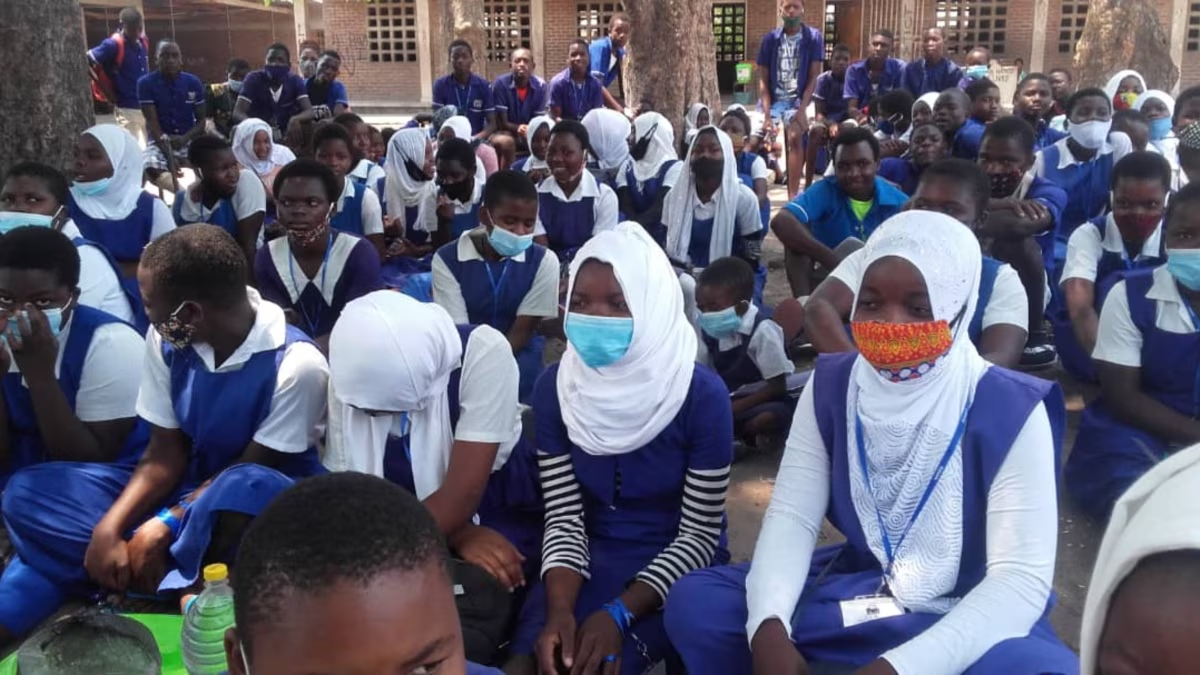

A report that has been released by Human Rights Watch has revealed that Malawians are not benefiting from the mining industry and instead they are victims of various human rights violations that are brought in the process of extracting these minerals in their respective communities.
The report by the international rights organisation exposes human rights violations among communities in Karonga district affected by coal and uranium mining operations of Eland Coal Mining Company, Malcoal, and Paladin Africa Limited (Paladin).
Among other findings, Human Rights Watch claims it has found that Malawi lacks adequate safeguards to ensure the necessary balance between development efforts and protecting the rights of local communities, and that weak government policies and lack of information make local communities unprotected.

In the report, Human Rights Watch has revealed that mining operations have forced several families to be relocated and that the families were notified so late that they had no time to find alternative housing, leaving some without shelter.
“Many said that compensation procedures were unclear and, in several instances, compensation fell short of what they needed to rebuild or sustain a comparable standard of living, including access to land.
“Residents also said they did not receive sufficient information about the planned mining operations and any associated risks, fueling concerns about serious respiratory diseases and other health and environmental impacts,” said the rights body in the report.
The organisation also discovered that villagers do not have adequate access to healthcare facilities where they could be assessed and treated for any mining-related health conditions.

The government and companies operating in Karonga district said that they monitor the impacts of mining, but they don’t release the results.
But villagers said they are worried about contamination of the water they depend on for drinking and irrigation. Residents said that trucks pass along narrow village roads, coating homes and schoolhouses in dust, and worried about health consequences, including respiratory diseases.
Farmers said that coal dust and poor water quality decreased their harvests. Eland coal mine, which ended operations in 2015, left behind piles of coal and open pits filled with water that can be dangerous for children and threaten local water sources.
Beatrice who is a resident of Mwabulambo said since the mining came they have had many problems.
“The coal is in our gardens and running into our fields. The way the crops look, you would think that someone had poured petrol on them,” said Beatrice.
Human Rights Watch Environmental Researcher Katharina Rall said the report also disclosed the hardships that women in Kayelekera and Mwabulambo are meeting due to environmental complications that affected water sources in these areas.
“The fluids from these mining companies polluted water that led to women walking distances in search of clean water,” said Rall.
The report also highlighted on lack of communication between the government and the communities about extraction of minerals in their localities.
A resident from Kayelekera said that one day they just saw Paladin company telling them to move from their areas and that the company is to start mining uranium in the area.
A government official from Department of Mines Burnett Msika said government will react on the report after analysing it thoroughly.















MALAWI FOR SALE
Kkkkkk
Humman Rights Watch,ndikuthokozeni kwambili.Vuto ndi andale omwe amalowerela mkumaba miyala ya mtengo wapataliyi,mwachitsanzo ku balaka kuli phiri la kangamkundi lomwe linali ndi strontianite monazite oposa 11 million tonnes koma lero,yambili mwa miyalai anatenga a Dr Bakili Muluzi ndi kuigulitsa ku Taiwan.Ku ntcheu kuli gemstone amene a mapanga produce sapphires and rubies.kulisunwi valley kuliso gold koma zosezi sizikutipindulira a malawi.ngati munthu akufuna ku panga malonda obisa mzeru yake mkuyambapo ndale kuti zizimubisa ku lamulo.Izi zikuchitika ndithu osati zongokambayi.Taonapo nduna ikugulitsapo miyanga ya njobvu kwa ma chainese,ndi maitalian mothandizana nda amsembe achizungu.
Do you hv minerals in MALAWI?
Politicians are not Malawians
even here in karonga Kayerekera has not helped us in anyway…they promised us heaven and earth,but nothing has happened…. Bingu and chiefs benefited….. anyway we are animals they are humans..
True
Amalawi ngati tatopa ndi democracy tingonena other wise u are just insulting other leaders without getting nothing out of it…it really looks like we don’t like the government being controlled by either party..nde the only way to solve this is to have no president and very tricky ministers,let’s be like the outside countries Basi,just having a PM mapeto ake nde this theft will never end
Zikakhala zomatitengela kundodo ngati malilo anjoka ife ayi
Dont Just Mention Mining The Sugarplantation Industry Especially Illovo Is Not Benefiting Malawians
I don’t understand why people continue says that malawi we don’t have resources thats whay malawi is of the pooriest country in africa
Is there a mine in Malawi ?poorest country in the world
So there are mines in Malawi… Hard to see
I hardly see them also bro…
We r crying over spilt milk coz of these corrupt leaders they dont consider the communal benefits but theres!!!
The present crop of thieves should go first before Malawians can see any benefits in anything.
Unfortunately those thieves are circulating from one political party to another or they form new political parties then you vote for them.
They vote themselves into gvt thru rigging.
this is bcoz of the company director they don’t think deeply even though they are ministers ,u are stealing for the poor pple instead of imploying in those industry company ,don’t copying with iron fist rulling of Dr. mutharika .
Mining bonya.Where in Malawi …